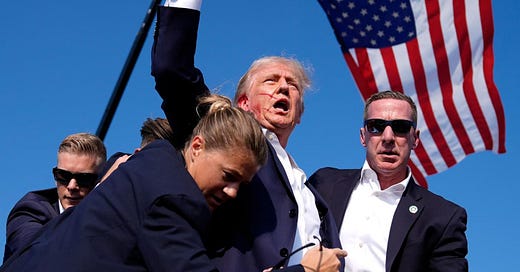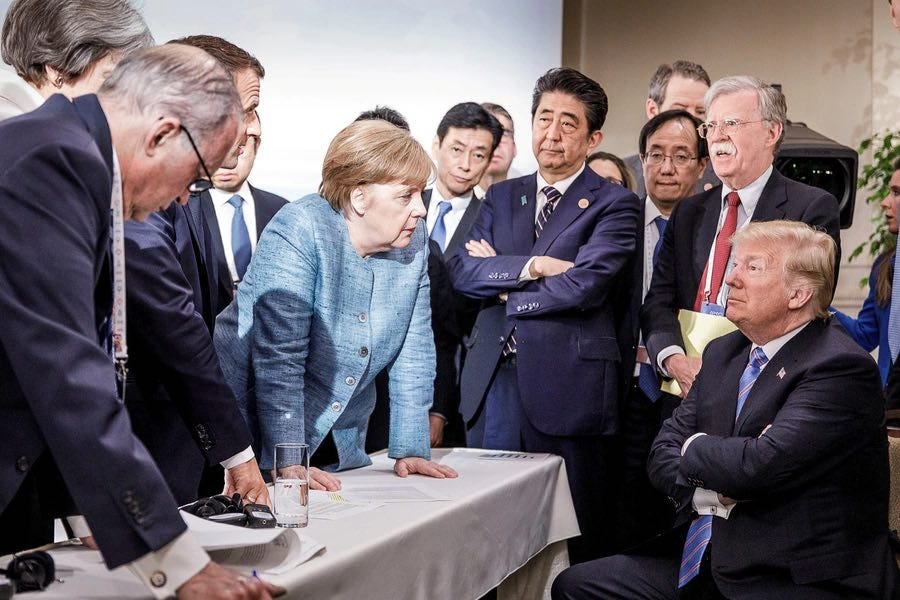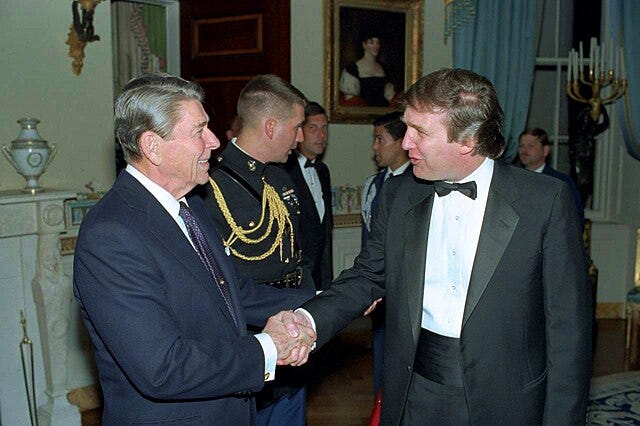Against all odds, Donald Trump won a decisive victory and will become the 47th President of the United States. He will be only the second American in history reelected to a non-consecutive presidential term. Trump prevailed despite the opposition of every institution in America, including the corrupt media and government.
Far from merely a defeat for his notional opponent, Vice President Kamala Harris, a stand-in for the status quo, or the failed presidency of dotard Joe Biden, Trump’s victory marks a consolidation of the New Right. What lies ahead will be such a radical break that it will make Trump’s first term look like a warmup.
Many pundits across the political spectrum will hope that the election result is an aberration: that Trump is a populist who bewitched the Republican Party and then duped the electorate. Perhaps he won because of Biden’s decay, the late switch to Harris, or an electorate that the elite deems too stupid to understand how good it has it.
Unfortunately for the doubters, the reality is far more stark than merely a transient setback or misunderstanding. Trump is the vehicle. The force behind his victory marks a fundamental turning point in U.S. history and the politics of the right around the world. This is not the high-water mark of the fight against the system. Rather, this marks the creation of a critical mass in the effort to replace that system.

Trump’s first victory in 2016 was a willingness by a public angered by a lost decade of economic stagnation and lost wars to give an unknown outsider a chance to mix things up. His second victory is a decision by that electorate, which now has his measure precisely, to supplant a corrupt system that runs through American and western society—a feckless compilation of self-appointed referees known also as the “elite” or the “establishment.” What was whimsy then is now determination and it is much bigger than just Trump. The system put everything it had into this election and it lost.
Those at home and abroad who have estranged themselves from the MAGA movement will take false solace from Trump’s previous term. This time will be different. The degree to which Trump changes America will depend on the effectiveness of his administration and an always-disappointing Congress. But it will be different.
In broad terms, one should assume that Trump will reduce regulations and taxes to spur the productive part of the economy. Conceptually, his polices will supplant globalism with nationalism, including higher tariffs. He will dispense with the progressive religions of climate change alarmism and racism under the banner of diversity. Despite being a late addition to his campaign, he will seek reductions in government spending except Social Security and Medicare. Internationally, he will devote fewer resources and less time to irrelevant or exotic alliances and partnerships, focusing instead on ones that matter most. He will order the largest deportation program since the Eisenhower administration. However, he will otherwise seek the reduction of the national security state, especially the intelligence bureaucracy, the Justice Department, and the secret police, all of which sought to undermine his presidency and reelection campaigns.
The big question is how far Trump wants to go and how far he will be able to go. In a nation of 335 million, it theoretically should not be hard to find effective and loyal people to fill the roughly 4,000 politically appointed positions in the executive branch. Yet subject-matter expertise in government and a willingness to confront the swamp while living in it are evidently rare qualities. Trump One had more than its fair share of appointees who were indifferent or opposed to the president’s wishes, joined by two million federal civilian employees, most of whom hated his guts. Trump’s own aides recognized the failure with personnel and were planning big changes in a second term. Trump himself acknowledged the problem in his recent podcast with Joe Rogan.

If Trump and his top lieutenants manage personnel better—acknowledging that some duds and flops among appointees are impossible to avoid entirely—his impact will be magnified greatly. His term could see big tech broken up, the military transformed radically and reoriented to the Pacific, the seeds planted for the type of news media that America deserves, the border secured and all illegals deported, mass reductions in government employment and handouts in order to balance the budget, and universities regulated to teach real things instead of disdain for America.
However, no matter how well Trump does, one thing is already clear. The New Right he has helped to create is now not only dominant but insurmountable on its side of the political spectrum. The “NeverTrump” Republicans may still land some media money, but they no longer exist as a political force. They have gone the way that Rockefeller Republicans did during the Reagan administration. The fact that anyone under fifty will have to look up what a “Rockefeller Republican” was is a testament to their extinction—and that of today’s opponents of Trump and the New Right among Republicans.
A final point is that this election’s rebuke of the system is not just political but cultural as well. Trump and the rise of the New Right are not just about the economy, inflation, tax rates, and America losing. It is also a cultural shift. The system told Americans that voting for Trump would lead not just to bad policy but was morally wrong. He is a (fake) felon. He is a (fake) fascist. He is a lout and a liar—or so came the word from the system’s hypocrites projecting their own traits on Trump.
Electing Trump was a rejection of this schoolmarmery. It is a rejection of they/them pronouns, tampons in boys’ rooms, school shutdowns, neurotic Karens who politicize everything, celebrities who deign to preach, attempts to emasculate the military and everything else in America, and all of the other progressive passions. Trump’s election marks a return to normalcy in which merit and achievement are celebrated instead of politics and preening. Like Calvin Coolidge observing that, “...the chief business of the American people is business,” it is a deliberate turn inward, a focus on real life, and a decision to keep politics in its place.
Presumably there will be much emoting ahead. Who can forget the screaming woman at Trump’s first inauguration or the boo-hoo look on the face of reporters for most of the following four years? (I was reminded of my own return to State Department headquarters after George W. Bush’s 2004 reelection—I had Darth Vader’s “Imperial March” tune in my head as I enjoyed all of the sadder-than-usual faces.) Less amusing were the Russia hoax, the phony Ukraine impeachment, and the “Summer of Love” riots orchestrated by Antifa and BLM.
Who knows what lies ahead this time. But it is important to keep in mind that Trump and his policies have a clear mandate from the Republic he will soon lead again. The country has spoken. And the country and the world will be changed.
Christian Whiton was a State Department senior advisor in the Trump and Bush administrations. He is a senior fellow at the Center for the National Interest and a principal at DC International Advisory. The author of “Smart Power: Between Diplomacy and War,” he co-hosts the “Domino Theory” podcast and edits “Capitalist Notes” on Substack. He appears frequently on Fox Business and Newsmax, and has appeared on Fox News, Sky News Australia, CNBC, GBTV, NHK, MSNBC and numerous other outlets. He has served on the boards of major media companies, advised Republican presidential campaigns, and previously worked in mergers and acquisitions.









We did it! The incredibly diverse coalition of the New Right soared over the hive mind of the democratic party. I am the most hopeful I've been for the future as I've watched the attacks from the left on the US Constitution and every "group," bring together strange bedfellows and the wagons circled. The resurrection and seeping of the Jim Crow overseer into every facet of life has been crushed.
Everything you pointed out concerning political appointees has me worried. Hopefully he will find better people, if there are better people? For his "policy changes" to have any chance at it will require both houses of Congress and a remarkable group of appointees. Great article.